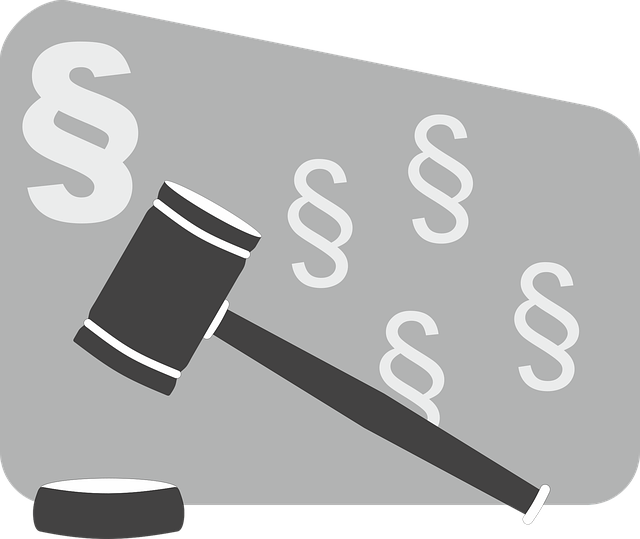Regulatory compliance is critical for businesses, requiring understanding and adhering to governing body rules. Legal Representation in Administrative Hearings (LRAH) offers crucial support when non-compliance leads to legal issues. Skilled attorneys specialize in white-collar defense, guiding companies through complex processes, preparing evidence, crafting arguments, and advocating on behalf of clients. LRAH is vital for addressing data privacy, environmental regulations, and white-collar crimes, mitigating risks, developing effective policies, and ensuring compliance while fostering ethical conduct. Strategic planning with a robust legal team enhances success in complex regulatory landscapes.
Navigating regulatory compliance issues can be a complex and challenging task for any organization. In this article, we explore the fundamentals of regulatory compliance basics and delve into the critical role that legal representation plays during administrative hearings. Understanding common compliance issues and implementing effective hearing preparation strategies is essential to mitigate risks and ensure successful outcomes. Discover how professional legal counsel can guide you through these intricate processes, providing valuable insights and advocacy.
- Understanding Regulatory Compliance Basics
- Role of Legal Representation in Hearings
- Common Compliance Issues and Challenges
- Strategies for Effective Hearing Preparation
Understanding Regulatory Compliance Basics

Regulatory compliance is a critical aspect of any business operation, as it ensures adherence to laws and regulations designed to protect consumers, employees, and the environment. At its core, regulatory compliance involves understanding and adhering to rules set forth by governing bodies, such as government agencies and industry-specific organizations. This includes obtaining necessary licenses and permits, implementing robust internal controls, and maintaining accurate records. Businesses must stay proactive in monitoring changes in regulations to avoid penalties and maintain their reputation.
In cases where non-compliance leads to legal issues, having skilled legal representation in administrative hearings can be invaluable. A competent attorney specializing in white collar defense can guide companies through complex legal processes, aiming to avoid indictment and achieve extraordinary results. This support is crucial for navigating the intricate web of regulations and ensuring businesses remain competitive while adhering to the law.
Role of Legal Representation in Hearings

When navigating regulatory compliance issues, particularly during administrative hearings, having robust legal representation is paramount. The role of legal counsel in these proceedings cannot be overstated; their expertise and strategic guidance can significantly influence the outcome. Legal representatives possess a deep understanding of the intricacies involved, ensuring clients’ rights are protected throughout all stages of the investigative and enforcement process. This includes pre-hearing preparation, where lawyers scrutinize evidence, identify potential loopholes, and craft persuasive arguments.
During hearings, legal representation acts as a formidable advocate, presenting evidence, examining witnesses, and articulating the client’s position with eloquence. Their unprecedented track record in achieving extraordinary results speaks to their ability to navigate complex legal landscapes. This specialized support is invaluable, especially when facing regulatory bodies with vast resources and intricate legal frameworks. Effective legal representation ensures that every aspect of the hearing process is managed competently, maximizing the chances of a favorable outcome for the client.
Common Compliance Issues and Challenges

Regulatory compliance issues are a constant concern for businesses across various sectors. Common challenges include navigating complex and evolving laws, ensuring data privacy, and adhering to environmental regulations. Many companies struggle with understanding and implementing necessary protocols, leading to costly penalties and reputational damage. For instance, white-collar and economic crimes pose significant threats, demanding robust internal controls and meticulous record-keeping.
Legal representation in administrative hearings plays a pivotal role in addressing these issues. Skilled attorneys specializing in white-collar defense can guide businesses through the complexities of regulatory compliance. They help in interpreting laws, developing effective policies, and mitigating risks specific to each respective business. This proactive approach ensures companies stay compliant, enhancing their ability to navigate potential legal pitfalls and fostering a culture of ethical conduct.
Strategies for Effective Hearing Preparation

Preparing for an administrative hearing is a meticulous process that demands strategic planning and thoroughness. One of the most effective strategies involves assembling a robust legal team, especially when navigating complex regulatory landscapes. Engaging experienced attorneys specialised in legal representation in administrative hearings can significantly enhance your chances of success. They understand the intricacies of these proceedings, ensuring every detail is considered.
Additionally, comprehensive preparation should include gathering and organising relevant documents, thoroughly researching applicable laws and regulations, and identifying potential witnesses. By employing these strategies, businesses can effectively navigate avoiding indictment, maintain their integrity within philanthropic and political communities, and uphold the principles of their respective business practices.
Regulatory compliance is a complex landscape, especially with evolving laws and strict enforcement. While navigating this tapestry can be challenging, having robust strategies in place significantly enhances outcomes. Engaging legal representation for administrative hearings offers invaluable expertise, ensuring organizations are well-prepared to address common compliance issues. By leveraging their knowledge, businesses can effectively manage risks and demonstrate regulatory adherence, ultimately fostering a culture of compliance and mitigating potential penalties. In today’s digital era, staying ahead of these regulations is key to long-term success.






